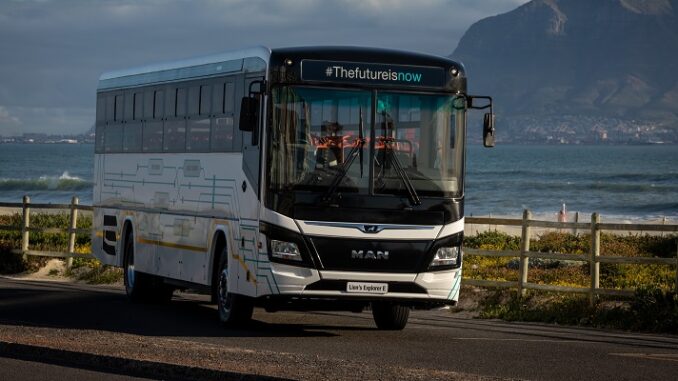
The race for sustainable transport continues to go up the gears as more solutions are explored, trialled and released for use
In September this year, an IVECO S- Way truck powered by bioLNG sped its way across Europe as part of the ‘On the road to net-zero emissions’ bioLNG tour of IVECO and Shell. The goal was to complete the 10-day journey without contributing any emissions to the atmosphere and, having covered thousands of kilometres, was labelled as a success by IVECO upon its conclusion.
While the campaign demonstrated the viability of bioLNG-powered trucks, it serves as another example of manufacturer desire to deliver sustainable solutions for customers.
In Africa, the appetite for sustainable transport is less developed due to the dominance of the used-vehicle market, a lack of infrastructure, and a deficiency in funding (to name but a few reasons). However, many are appealing for governments to embrace this phenomenon and encourage the transformation of the sector. According to Agora Verkehrswende’s Leapfrogging to Sustainable Transport in Africa report, the transport industry is responsible for a whopping 29% of total CO2 emissions from the combustion of coal, crude oil and natural gas on the continent and this is growing rapidly. If this issue is left unaddressed it could get out of hand, potentially requiring costly intervention at a later time. In many respects, therefore, it is better to drive the process forward now.
In light of this, there is progress being made across the continent. South Africa is leading the way and drawing a variety of companies who are utilising it as a pilot arena for their solutions. BMW, for instance, has been attracted, and has begun a collaboration with Anglo American Platinum and Sasol to bring hydrogen fuel cell electric vehicles (FCEVs) and supporting refuelling technology to the country. The vehicles will operate there as part of an international trial for the BMW iX5 Hydrogen.
Sasol’s other hydrogen alliance – with Toyota South Africa Motors and Air Products South Africa – is also bearing fruit. The partners have demonstrated the viability of a hydrogen mobility ecosystem with a proof-of-concept using a second-generation Toyota Mirai FCEV.
Andrew Kirby, president and CEO of Toyota SA Motors, said that the challenge is how to commercialise a hydrogen mobility ecosystem in South Africa which will require more partners, investors and government support. Currently, the partners are looking at eco-clusters to begin with before introduction to well-suited regions, major long-haul routes and, ultimately, into other countries.
Elsewhere, Volvo Trucks has agreed to provide 45 Volvo FH Euro 5 truck-tractors for DHL Supply Chain’s South African fleet with the first five units already delivered. The vehicle’s engines have lower fuel consumption than previous units, and with more customers in the country seeking to improve their environmental footprint, the uptake of Euro 5 models is increasing.
Inhabitants of Cape Town might spot a new innovation traversing their streets as MAN Truck & Bus has delivered the all-electric complete bus – the Lion’s Explorer E vehicle – to the city before it enters series production from 2024. This is the first MAN eBus that has been provided to a customer outside of Europe and the new model is being built entirely in South Africa
